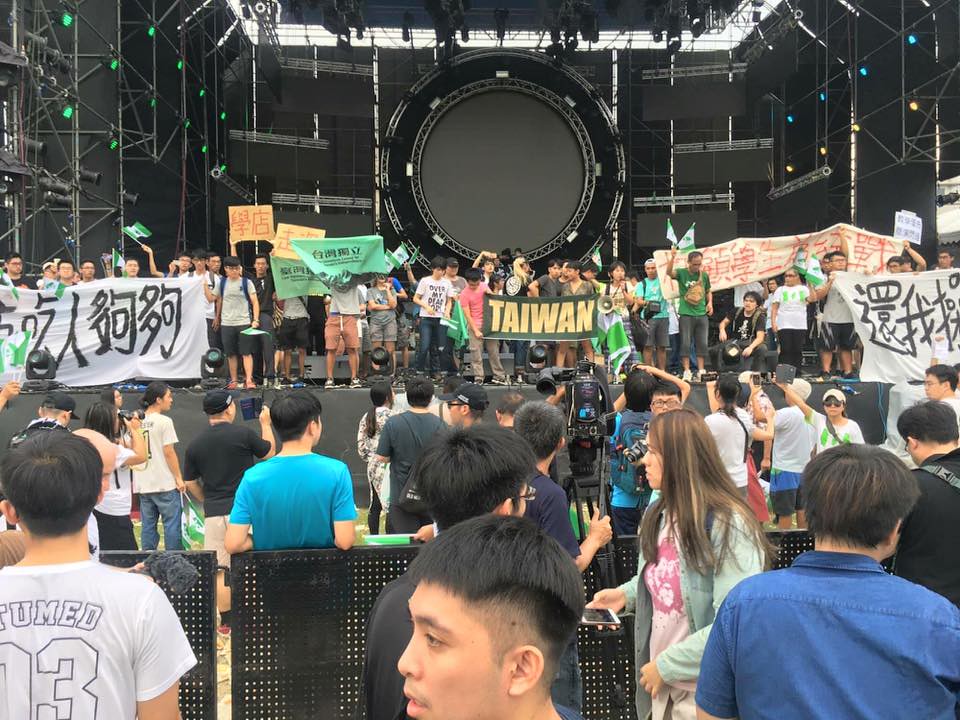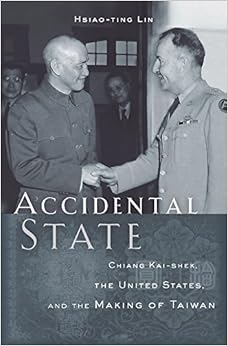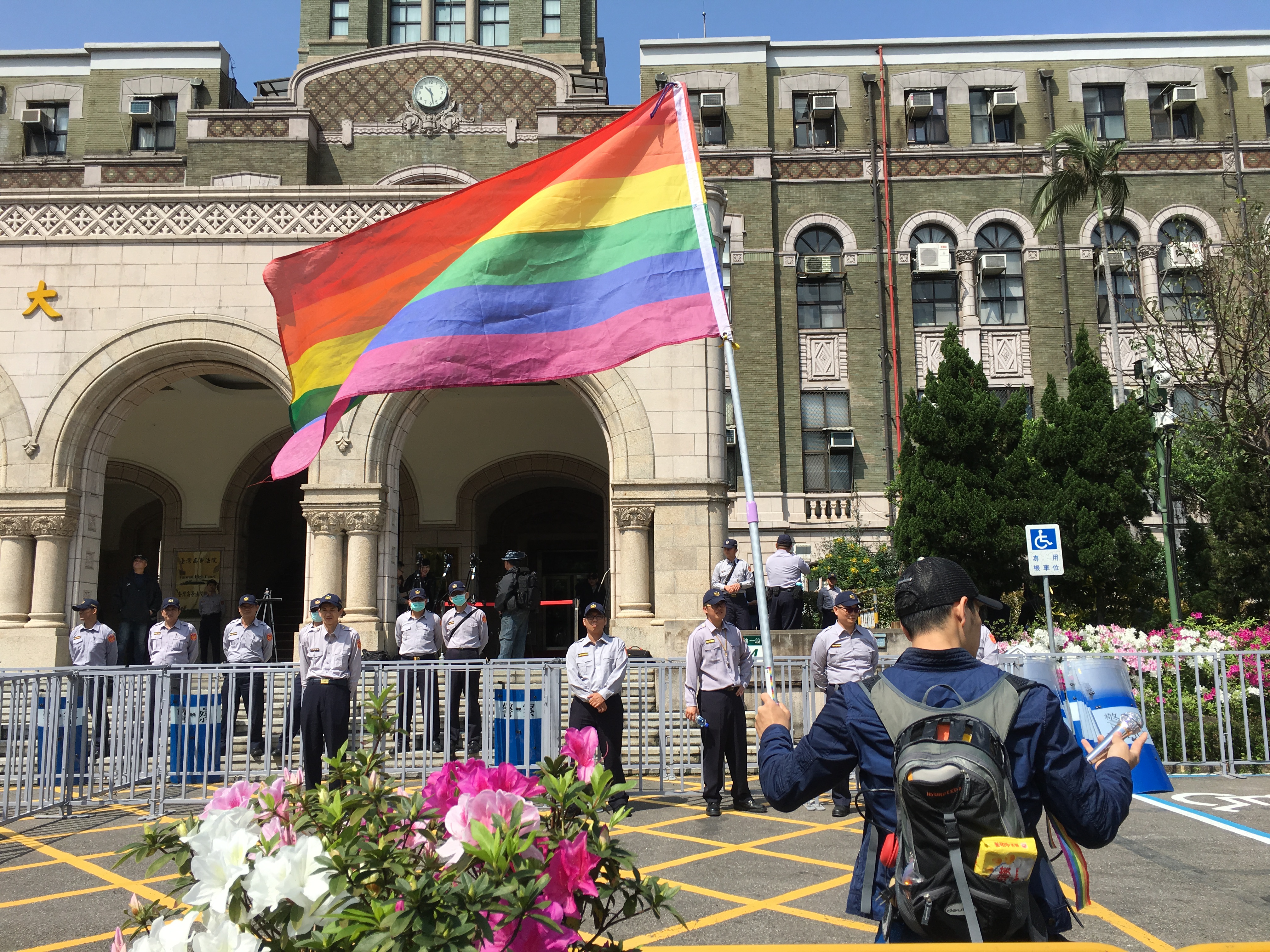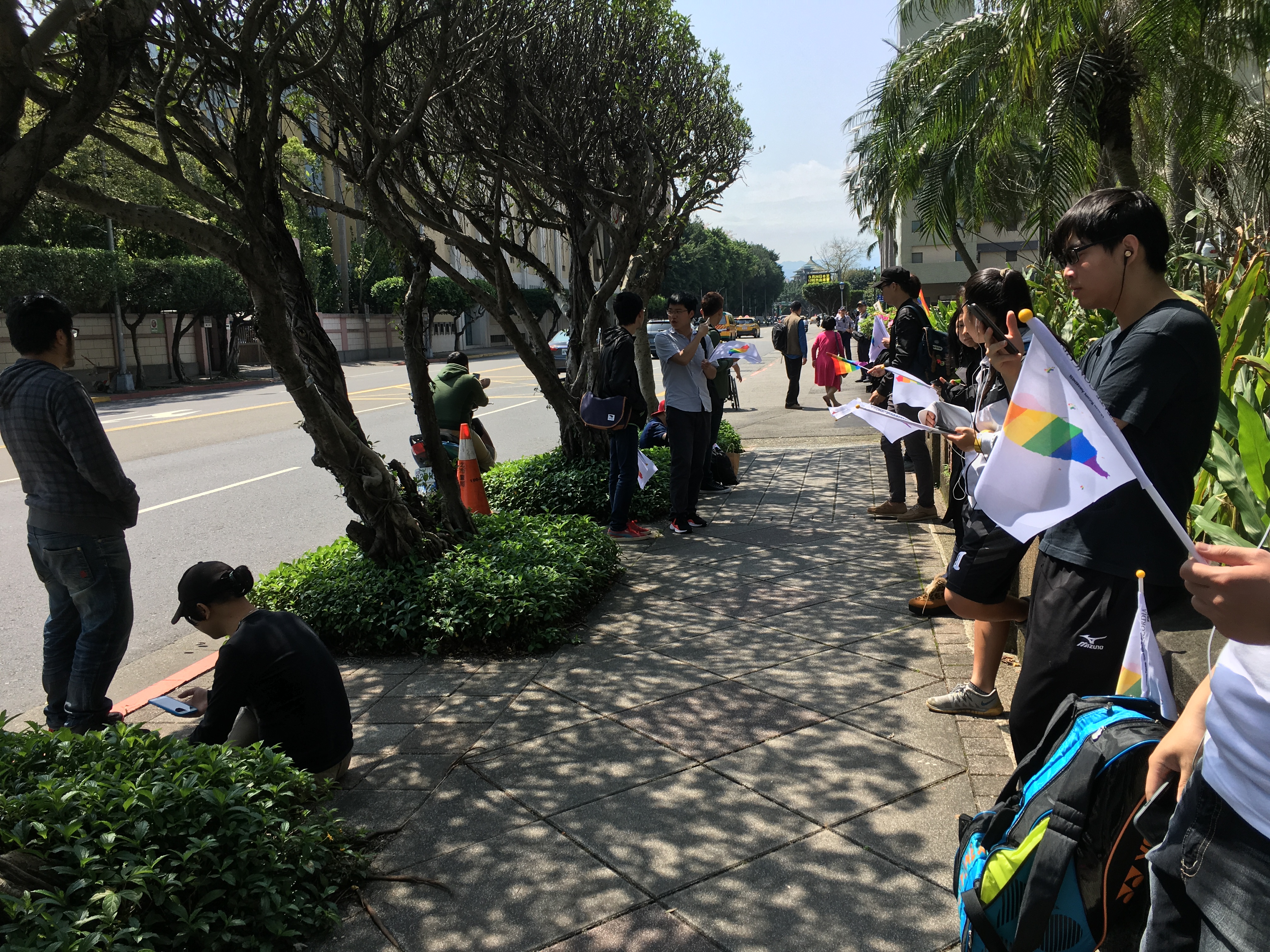 |
| Photo from student activist public posts on Facebook |
Earlier today, a music festival meant to "showcase the talents" of Chinese and Taiwanese musicians and bring them together so they could "learn from each other" (this was the official talking point, anyway) was stopped early as pro-Taiwan protests broke out. At one point, at least one pro-China unificationist, an older man, confronted the protesting students, beating at least one with a stick to the point that he was bleeding profusely and had to be taken to a hospital for treatment.
Update: Taipei Times has by far the best story. This gives a full accounting of what happened before the pro-China people got involved. And here's an article from New Bloom which has some great legwork on the history of Sing China and how its rebranding could well be a part of attempts at cultural unification, as well as background on the backlash against Taipei Mayor Ko Wen-je.
Focus Taiwan ran a "story" in English, with Apple Daily publishing something in Chinese and Freddy Lim commenting on Facebook (also in Chinese). There is also a bilingual report from a Facebook poster here, and a video - do watch the video - here.
Here's another video (which will link to more) showing more of what happened. It looks pretty clear that the students are not the ones who started the altercation.
The initial protests seemed to have two purposes: on one hand, they were clearly pro-Taiwan protests who did not want this Chinese music festival to take place. You can see that by the flags they are carrying, which are either the Taiwan flag that pro-independence activists use (a green Taiwan on a white field with green sides, looking similar to but not the same as the flag of the Democratic Progressive Party) or the sea green "I support Taiwan independence" banners with Taiwan inside of a stylized whale.
On the other, stated complaints where that the festival monopolized (and damaged) facilities on the NTU campus, including an athletic field that had been off-limits to students for some time to prepare for the festival.
There is also a discussion on constitutional reform (discussed today by Tsai Ying-wen at the DPP Party Congress) and 'students' rights' surrounding this that I'm still trying to unpack, which I'm going to go ahead and admit rather than pretend I understand every aspect of this incident.
Some reports say the protesters originally held tickets to the event, but were blocked from entering. Eventually, the festival was halted well before the scheduled 10pm ending time. Protesters later stormed the stage bearing pro-Taiwan signs.
Then, near the venue, at least one unificationist counter-protester from the Concentric Patriotism Association (愛國同心會), the same people responsible for violence outside Taipei 101 and for confrontational tactics even when protesting legally, approached, yelled at, threatened and beat one of the pro-Taiwan protesters. (Yes, I am sure it's them as behind him you can see one of their vans covered in Chinese flags in the video).
 |
| Photo from student activist public posts on Facebook |
According to the Facebook post, the police were called but took over 50 minutes to respond. This is clearly a problem, as it happened in a central location. The time it takes for the police to get a call and send someone does not account for that.
There's a lot to unpack here, so let's take a look.
First, why protest a music festival? Protesting that an unwanted festival is taking facilities away from students is one thing, but why the obvious pro-independence bent?
The most obvious issue, as Taipei Times pointed out, is that despite taking over student facilities including a track and athletic field at NTU, and despite this being billed as a cooperative "sister city" event between Taipei and Shanghai, in fact, the event organizers called National Taiwan University "Taipei City Taiwan University". Some protested that they were not "China Taiwan University", as well. The students - quite rightly in my view - were offended by the event stripping NTU of its real name and status, in the same way that Taiwan is stripped of its real name and dignity and is forced to compete in international sporting events as "Chinese Taipei".
It's also noteworthy that, although similar events have taken place before, in the past they were approved under a KMT-led city government. Now that the KMT is out of power in both Taipei and the national government, people expect better, not more humiliating name changes. Hence the anger at Mayor Ko, who was once seen as a pro-Taiwan politician but whose record on pro-Taiwan issues has since been marred.
From the Focus Taiwan article, you might be led to believe that this was just an innocuous cultural activity that was halted by thuggish immature students. You would probably be wrong. Although the festival was, according to Focus Taiwan, "legally permitted", it is widely believed to be connected to China's United Front work (the United Front being the amalgamation of Chinese organizations that work together to promote a pro-China and anti-Taiwan worldview - among other things - on a global scale. They do this through a number of means which you can read about here and here). New Bloom (linked above) lays out what this might look like in practice well:
Sing! China, the rebranding of the earlier The Voice of China singing competition, is a well-known Chinese reality television show. What is notable about Sing! China and its predecessor The Voice of China, however, is that the show goes out of its way to feature contestants drawn from “greater China,” including Taiwan and Hong Kong. This is also true of the television show’s judging panel, in which two of the six judges, Jay Chou and Harlem Yu, are Taiwanese. Judge Eason Chan, likewise, hails from Hong Kong, meaning that three out of the show’s six judges are not actually from the China mainland. The notion of “greater China” emphasized in the show goes to great odds to show that its contestants are drawn from all across “greater China”, with contestants oftentimes stating which province they are at the beginning of their self-introduction, and with their home province listed in their profile. Obviously, “Taiwan” is always a “province” of China on Sing! China.
Everyone I've talked to about this believes the festival to be connected to the United Front. Freddy Lim's post also alludes to this. He doesn't use the exact words "United Front" (統派) but he does say "這雖然是學生權益事件,大家也想知道,台大校方與台北市政府,怎麼能夠容許這樣帶有統戰意味、會稱來自「中國台北」的活動,進入校園、進入台北市" - "Although this is a student rights issue, everyone wants to know, how could NTU and the Taipei City government allow such a united front, coming from "Chinese Taipei" activities into the campus and into Taipei?" (Emphasis mine).
I don't think it's an accident that Freddy used words that literally mean "united front" without actually referring to the United Front by name. What I'm saying is, these students, it seems to me, did not just protest a music festival because it happened to be related to China. They protested it because they knew it was just one of the United Front's many tactics in their war of attrition and propaganda against Taiwan. Their mission - disruption of campus facilities or Taiwan independence? - was not confused. In this light, it makes perfect sense. Next, let's look at the Focus Taiwan article, which I am trying very hard to refrain from calling all manner of names. Did one of the oldsters from the Concentric Patriotism Association get a job at CNA or Focus Taiwan? The article paints the festival as innocently as possible - perhaps fair as there is no proof it was anything other than that, but any even halfway intelligent person should be able to deduce that there's more than meets the eye here. But not Focus Taiwan. They say:
The MAC noted that Sing China Music Festival was a legally permitted activity that was meant to showcase Taiwan's music talent and give young musicians in Taiwan and China a chance to learn from each other.
This is perhaps forgivable, as the bare facts are that it was a permitted festival that, by being allowed by Taipei City and NTU, was obviously "supported" by Taipei in some way.
However, you won't see any mention of the protesters pro-Taiwan stance or the "Taipei City Taiwan University" issue in the article, either. It's purposeful omission is telling.
But if you read the article in its entirety, you'll note that while there is mention of "injuring a student", the writers make it sound as though the injuries were the result of a fight that was instigated by both sides being confrontational. In fact, every other picture from the pro-Taiwan protest shows a peaceful, albeit disruptive, demonstration. This was not "commotion" caused by "both sides".
Protesters splashed banners, chanted slogans and stormed onto the stage while supporters of the festival shouted back, creating tension as both sides confronted each other.
Four people were injured during ensuing scuffle, and police arrested a man surnamed Hu on charges of injuring an NTU student. Hu was taken to Da'an Police Station for investigation.
This was pro-China unificationist protesters doing what we already know they do: roughing up anyone who disagrees with them. Note, as well, the implication that the protesters "chanting slogans" and "storming onto the stage" were the instigators, with the unificationists seeming to merely react. Absolutely biased, in the most insidious way.
If you watch the video, however, while it starts after the beating begins, you'll note that the pro-Taiwan person "confronting" him was saying "What do you want?" (你要什麼?) and "What are you doing?" (你幹嘛) - not something you say if you were a part of the fight starting.
It is also much more serious than simply "injuring" a student. "Injuries" happen when there's a little pushing or shoving. This was a full-on beat-down with a stick that resulting in the student going to the hospital. Nothing that student could have done would have merited being beaten like that. Focus Taiwan makes it sound like maybe they were pushing each other and the student fell. Although the video doesn't go back that far, this seems unlikely.
At the end, you'll also note this little gem:
Li Wenhui (李文輝), Shanghai City's Taiwan affairs chief who was present at the time of protest, kept a low profile and declined to make any comment on the untoward commotion.
(Rest assured that if they change this wording, I have a screenshot).
Isn't this meant to be a straight news article? I get to editorialize - this is my blog. CNA reporters whose work is appearing in Focus Taiwan don't, or shouldn't. The fact that they ran the "untoward commotion" comment at the end tells you all you need to know about how trustworthy they are as a news source. What right do they have to decide what "commotion" is untoward and what isn't?
I know Focus Taiwan can be somewhat conservative, and CNA even moreso (and also very politically biased), but here's the problem: at the time I wrote this post, other than Yiting Wang's post, this was the only English-language source on what happened available. There weren't multiple sources coming together so that people could consider the event from more than one angle and reach conclusions. Reading this, those who cannot read Chinese might get a very skewed idea of what exactly happened.
This is a problem. If we want more people in the international community to be cognizant of, and care about, Taiwanese affairs, we have to make sure they are aware of these incidents in a fully-informed way. The Focus Taiwan article, if anything, contradicts that goal rather than supporting it.
Finally, a thought.
For all of those people who take a pro-China viewpoint, or tend to clutch their pearls at pro-Taiwan demonstrations and protests, for those who think that the best or more realistic goal is eventual unification, who might even think annexation is acceptable, who think that the Concentric Patriotism Association is just as legitimate as the students who protested today, consider this.
You are on the same side as an old man who beat a student with a stick so badly that he was bleeding from the head and went to the hospital - someone who claims the freedom to protest, but uses it to attempt to aggressively and violently stop others from exercising those same rights. You are on the side that is against freedom, or rather, allowing only one viewpoint to express itself without fear.
If this is what you support, this is the Taiwan you will have should China win. This is just a taste of what authoritarian rule looks like: one side is free to say what it likes and enforce its views, whereas the other is beaten, or in China, kidnapped, tortured, disappeared, or killed.
Is this the Taiwan you want? Where one side is derided and even beaten for protesting whereas the other is free to do the beating, with the police not intervening for nearly an hour? (The police always come quickly, mind you, when the protesters are students or pro-Taiwan. It's, shall we say, odd that they seem to take so long when the call is about the Concentric Patriotism Association).
This is not free speech. This is not freedom of assembly. This is not civil disobedience, and it is certainly not non-violent resistance. It is very violent, and very anti-freedom. If you see a Chinese future for Taiwan, this is what you support.
The Concentric Patriotism Association has the right to protest and demonstrate peacefully. When they have proven again and again that they cannot and will not be peaceful, I think it's time we discussed what measures must be taken to ensure the safety of pro-Taiwan activists.



